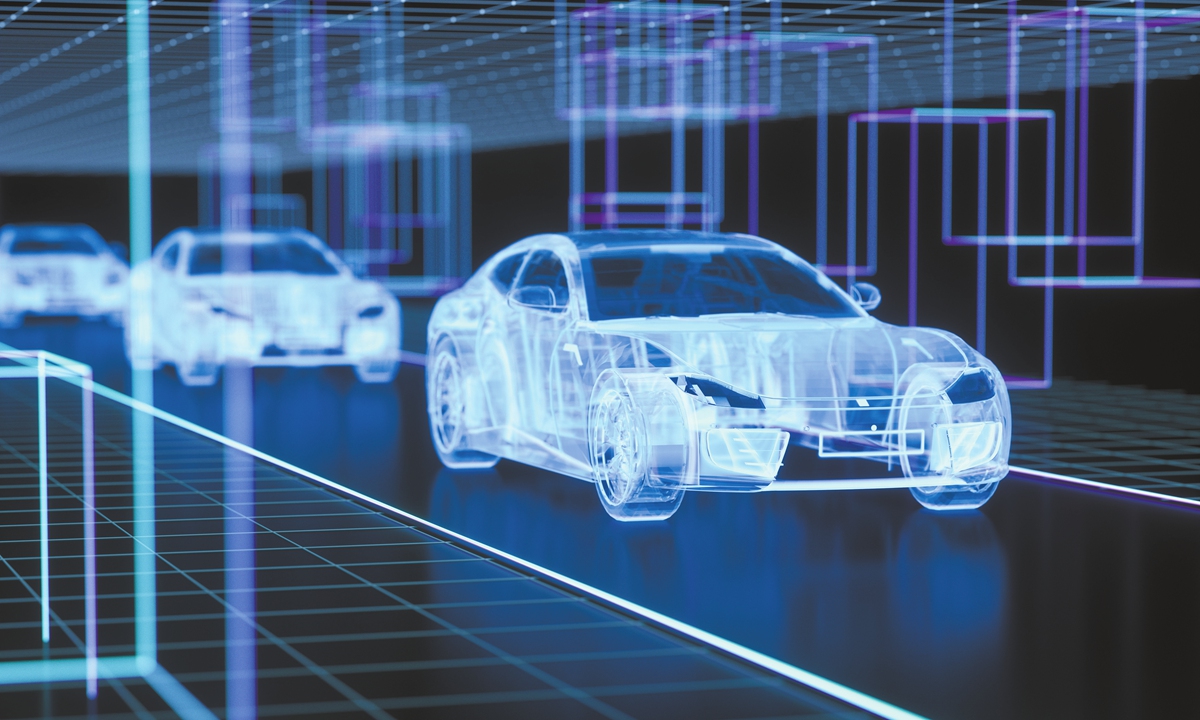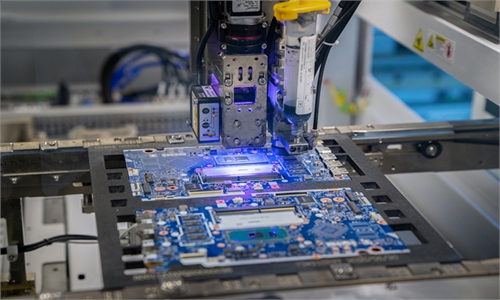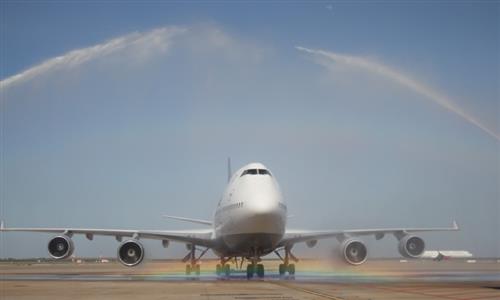As Tesla’s Cybercab slated for 2026 rollout, China’s autonomous driving industry should accelerate pace: analysts

A creative illustration of smart cars driving on a virtual road Photo: VCG
After months of delays, Tesla unveiled its driverless taxi named Cybercab on Friday, marking a new milestone in the global autonomous driving competition led by China and the US. Chinese industry analysts said that the launch would activate intelligent connected vehicle sector's competition while expecting that this would benefit the overall industry considering China's open and competitive market environment.
As Tesla's driverless taxi is likely to roll out of the assembly line in 2026, China's unmanned driving industry should seize the opportunity to accelerate development, even though China has already been a global leader in autonomous driving technology innovation and application, analysts said.
Tesla's Robotaxi, introduced as a concept car without a steering wheel and pedals, is projected to be priced under $30,000. Vehicle production is expected to begin in 2026, with large-scale mass production slated to commence in 2027, Elon Musk, CEO of Tesla, said on Friday during a launch event for Cybercab.
Following Google's Waymo and GM's Cruise models, the US autonomous driving industry is seeing another significant player, according to analysts.
They also noted that Chinese automakers have already built a solid technological foundation in both electric vehicles and autonomous driving technology. Embracing market openness and promoting market competition is advantageous for Chinese automakers.
Thriving innovation
China's technology firm Baidu and others have made major advances in the autonomous driving sector. At present, a good number of Chinese companies have established Robotaxi operations, including Baidu, Didi, Pony.ai, AutoX, WeRide, as well as GAC and SAIC Motor.
Autonomous driving is a key technology making use of large artificial intelligence (AI) models and is a crucial aspect of the upcoming transformation and advancement of the automotive industry. Chinese companies are thriving in this innovation field.
On Wednesday, Chinese media reports indicated that Baidu is set to unveil its Apollo autonomous driving open platform 10.0, which will be equipped with Baidu's latest Autonomous Driving Foundation Model (ADFM).
This marks the world's first large-scale autonomous driving model capable of supporting L4 driverless applications. According to China's national standards, autonomous driving is categorized into six levels, ranging from level 0 to level 5. From level 3 onward, vehicles are considered conditionally autonomous. At L4, automobiles provide driving capabilities with no expectation of human intervention.
In May 2024, the sixth-generation driverless vehicle from Baidu's Apollo Go Robotaxi entered mass production, with its cost reduced to around 200,000 yuan ($27,000). It has begun road testing in selected Chinese cities and is expected to be deployed for public use soon, according to Chinese media reports. Previously, Apollo Go Robotaxi fulfilled 7 million rides across China.
China has attained significant development advantages in the field of autonomous driving, including a vast automotive market, advanced infrastructure, improving industrial standards, and a relatively strong technological base, Chinese analysts noted.
"China's related industrial support facilities and government policies are fueling the rapid development of its autonomous driving companies," Wu Shuocheng, a veteran automobile industry analyst, told the Global Times on Saturday.
China has a vast and mature market for the application of autonomous driving technology, a Shenzhen-based industry insider surnamed Zeng told the Global Times on Sunday in an interview.
"Many Chinese carmakers or other technology companies involved in driverless vehicle development have conducted autonomous driving tests in phases, which put China in a leading position in terms of road tests and practical applications," said Zeng.
Zeng noted that, currently, nearly all vehicles manufactured in China, particularly the new-energy vehicles (NEVs), are classified as smart cars because they integrate sophisticated intelligent functions.
"These functions include autonomous driving features that enable vehicles to navigate and operate with minimal human intervention by leveraging a combination of sensors, cameras, and AI algorithms. Additionally, many of these automobiles have installed voice control systems that facilitate interaction between drivers and passengers with the car's infotainment system," said Zeng.
According to forecasts by the Forward Industry Research Institute, by 2030, the market scale of China's intelligent connected vehicles is projected to surpass 5 trillion yuan, and the scale for the "vehicle-road-cloud integration" sector will exceed 14 trillion yuan.
Growing applications
Analysts noted that the China's huge market remains crucial for Tesla. In August 2024, Tesla sold 63,500 vehicles in China, accounting for 44.20 percent of its global sales and Chinese market became the company's top market in the world in August.
"The Chinese automotive market has remained open and welcoming to foreign competitors. Practice has proved that this open policy has not weakened the local automotive industry but helped promote the fast development of the industrial chain," Wu said.
For example, some large-scale NEV industrial hubs have been formed in the Yangtze River Delta in East China, the Pearl River Delta region in South China and the Chengdu-Chongqing Economic Circle in Southwest China.
These NEV hubs have attracted more than 1,000 domestic and foreign enterprises, establishing a comprehensive and integrated industrial chain and supply chain system that encompasses the entire spectrum of basic materials, auto parts, and vehicle manufacturing.
Apart from China's open policy to global automobile companies, Tesla received China's regulatory approval for its driver assistant Full Self-Driving (FSD) software.
Tesla announced in September that after securing regulatory approval from the Ministry of Industry and Information Technology of China, it plans to launch its FSD in early 2025 in the country.
The next three years will be a critical period for the commercialization and large-scale application of high-level autonomous driving functions in China, a technology consultant at a Shenzhen-based high-precision positioning service provider for cars told the Global Times on Sunday. The consultant declined to be named.
"As far as I know, many of our upstream and downstream companies are planning to construct new production lines or have expanded production to meet increasing demand from customers," said the consultant.
The year 2024 could be considered as the Year-One of explosive development of autonomous driving technology, the consultant said.



